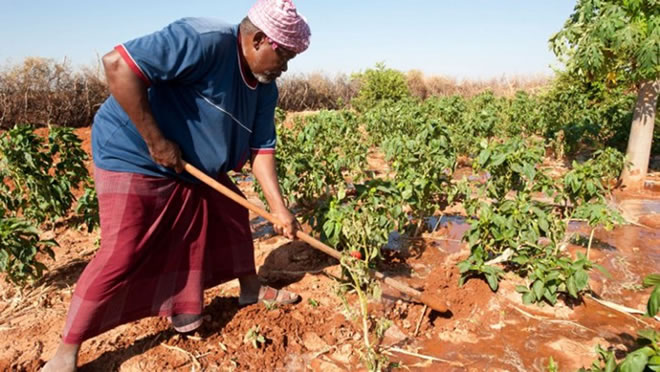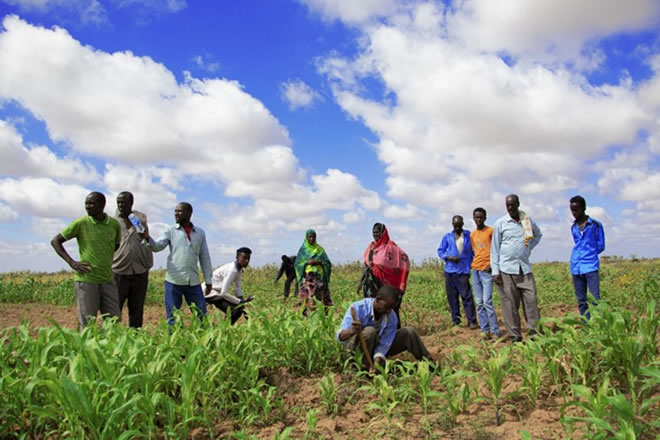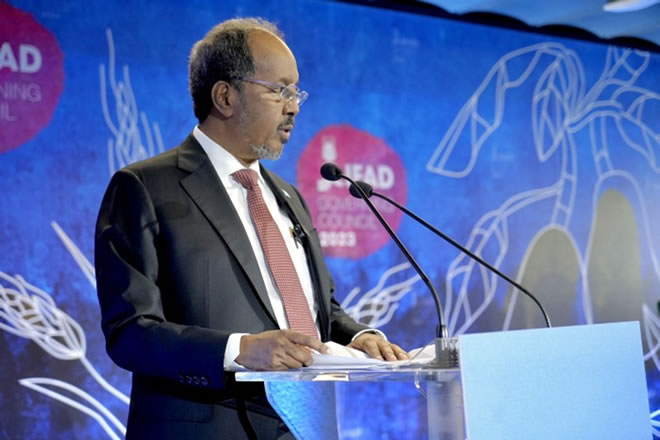by Mustaf Ishak Ali
Monday February 20, 2023

Recently, the
IFAD’s 46th session of the governing council has come to an end in Roma, Italy.
The conference focused on the discussion relating to the emerging food security
crises in the world.
Russia –Ukraine
war and the climate change crisis have tremendously impacted many African
countries like Somalia, and immersed in unpredicted situations fueling the
humanitarian crisis.

A looming Food
crisis in Somalia
Food security
is affected by numerous factors including inflation of food prices, climate
change, population increment, and natural hazards.
So far,
Initiatives and designing strategies to cope with the global food crises are at
the top headlines in every day’s news, nonetheless, Somalia remains one of the
poorest countries in the world as it experiences varying humanitarian and
security complications. Precarious and consecutive failed rainy seasons have
led to severe consequences that had adverse impacts on food insecurity
including, undernourishment and malnutrition.
Projections
indicate that by mid — 2023, almost half of the population in Somalia will be
in severe food insecurity due to an unprecedented drought.
Meanwhile, the
Integrated Phase Classification ( IPC) anticipates that in the period between
January and March -2023, numerous people will face crises as levels of acute
food insecurity increase up to 6.4 million of which 1.9 million will be in an
emergency (IPC Phase 4) and 322,000 in Catastrophe (IPC Phase 5).
IFAD resumption
of agricultural investments in Somalia

To curb the
food insecurity in Somalia, International Fund for Agricultural Development
(IFAD) affirmed that it will resume its direct investment in Somalia against
the backdrop of Somalia clearing its debt or arrears with IFAD through donor
contributions from some EU countries namely: Sweden, Italy, Germany and
Belgium.
Furthermore,
IFAD stated that the reason behind its long absence of investment in Somalia
was the outstanding arrears, justifying that the debt hampered Somalia to
benefit from IFAD grants and funds for three decades.
At the session,
the Somali president, his Excellency Dr. Hassan Sheikh Mohamud, praised and
welcomed the decisive step of IFAD, stressing that this will help Somalia to
transform from a humanitarian to a development phase.
Somalia has a
huge potential for natural resources. The agriculture sector plays a dynamic
role in national economic development as the vast majority of the population
relies on agricultural production.
The IFAD
re-engagement of direct investment in Somalia will underpin the inflow of
foreign investment and definitely, foreign firms and organizations will follow
suit.
The arable land
of Somalia mostly is permanent pasture and only about 1.5% is utilized for
farming. However, this shows that the country is in pressing need of a huge
investment that will be part of the recovery of Somalia’s economy and national
development.
Having said
that, the endeavors to transform the productive sector in the country will
bring concrete results notwithstanding hindering factors that exist but
tireless efforts by decision-makers will facilitate in overcoming those
challenges.
Recommendations
Food security
is a global issue as every country prioritizes addressing hunger, poverty, and
health-related issues. In Somalia’s context, efforts have been extensively
exerted locally and internationally toward achieving sustainable food security
but for different combined impediments, still, no tangible progress has been achieved.
However here
are some recommendations and suggestions that will backstop the strategies of
boosting the agriculture sector to achieve sustainable food security in the
country:
1. Prioritizing
the agricultural sector by the government will bring concrete results
2. Enabling an
environment for investment can attract countless investors.
3. Training and
capacitating the farmers with required hands-on knowledge and skills.
4.
Establishment of agricultural innovation hubs, schools, and institutes.
5. Since the
cultivation of farms is practiced in rural areas, security issues should be
solved.
6. Extension
and research centers for agriculture are the main pillars of development in the
agricultural sector.
7. Somali
farmers are considered small-scale farmers and hence they are getting
disappointed with farming because of some organizations that distribute food
kits in the harvesting season and this led to abandoned farms.
8. Market and
pricing policies should be introduced and implemented in a way that will motivate
farmers to maintain their careers and in turn, increase agricultural
production.
Last but not
least, in every country, the government can’t attain any economic growth or
development without investing and utilizing its natural resources, particularly
in the agricultural sector, and thus the government should facilitate and
remove any hurdles for farmers and investors to ensure sustainable food
security because there are pillars for food security i.e. availability,
accessibility, utilization, and stability.
Mustaf Ishak Ali
Researcher and Social Development Activist
[email protected]